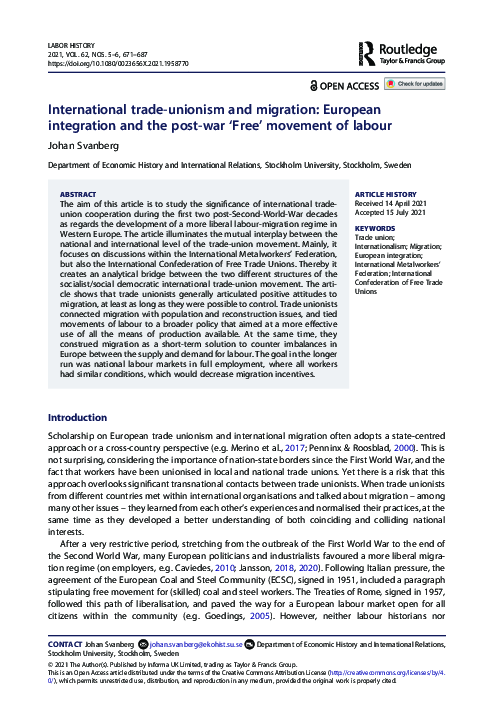International trade-unionism and migration: European integration and the post-war ‘Free' movement of labour

2021
62
5-6
671-687
international trade union ; migration ; European integration ; ICFTU
Trade unionism
English
Bibliogr.
"The aim of this article is to study the significance of international trade-union cooperation during the first two post-Second-World-War decades as regards the development of a more liberal labour-migration regime in Western Europe. The article illuminates the mutual interplay between the national and international level of the trade-union movement. Mainly, it focuses on discussions within the International Metalworkers' Federation, but also the International Confederation of Free Trade Unions. Thereby it creates an analytical bridge between the two different structures of the socialist/social democratic international trade-union movement. The article shows that trade unionists generally articulated positive attitudes to migration, at least as long as they were possible to control. Trade unionists connected migration with population and reconstruction issues, and tied movements of labour to a broader policy that aimed at a more effective use of all the means of production available. At the same time, they construed migration as a short-term solution to counter imbalances in Europe between the supply and demand for labour. The goal in the longer run was national labour markets in full employment, where all workers had similar conditions, which would decrease migration incentives."
Digital
The ETUI is co-funded by the European Union. Views and opinions expressed are however those of the author(s) only and do not necessarily reflect those of the European Union or the ETUI.